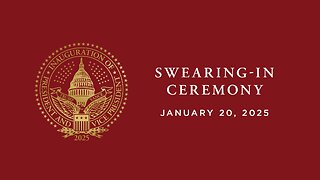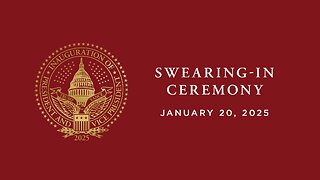Premium Only Content

Episode 2750: In Thee, O Lord, I Place My Hope - Nightly Episode
“O my God, at the end of this day I thank You most heartily for all the graces I have received from You. I am sorry that I have not made better use of them. I am sorry for all the sins I have committed against You. Forgive me, O my God, and graciously protect me this night. Blessed Virgin Mary, my dear heavenly mother, take me under your protection. St. Joseph, my dear Guardian Angel, and all you saints of God, pray for me. Sweet Jesus, have pity on all poor sinners, and save them from hell. Have mercy on the suffering souls in purgatory. Amen.”
In Thee, O Lord, I Place My Hope
Tonight’s episode, where we delve into the profound relationship between hope in God and detachment from worldly comforts. In our chaotic world, where the temporary often overshadows the eternal, these reflections challenge us to reorder our priorities. Today’s discussion draws inspiration from the timeless wisdom of St. Francis Xavier and the thought-provoking words of Walter Ciszek, SJ.
________________________________________
Segment 1: Trusting God in Uncertainty
Let us begin with the words of St. Francis Xavier:
"In Thee, O Lord, have I put my hope. Let me never be confounded."
This simple yet profound prayer encapsulates the Christian journey a call to anchor ourselves in God alone, especially when the ground beneath us feels shaky. The world constantly tempts us to place our trust in fleeting securities: wealth, social status, or even the routine comforts of life. But St. Francis Xavier reminds us that our hope is secure only when it rests in God.
The life of St. Francis Xavier itself is a testament to this truth. He left behind the comforts of Europe to bring the Gospel to far-off lands, often facing danger and uncertainty. Yet his unwavering hope in God emboldened him to persevere, knowing that true security lies not in earthly stability but in the eternal promises of Christ.
________________________________________
Segment 2: Walter Ciszek on Disruption and Divine Providence
Walter Ciszek, a Jesuit priest who endured years of imprisonment in Soviet labor camps, offers a powerful reflection on God’s intervention in our lives:
“We go along, taking for granted that tomorrow will be very much like today, comfortable in the world we have created for ourselves, secure in the established order we have learned to live with, however imperfect it may be, and give little thought to God at all. Somehow, then, God must contrive to break through those routines of ours and remind us once again, like Israel, that we are ultimately dependent only upon him, that he has made us and destined us for life with him through all eternity, that the things of this world and this world itself are not our lasting city, that his we are and that we must look to him and turn to him in everything. Then it is, perhaps, that he must allow our whole world to be turned upside down in order to remind us it is not our permanent abode or final destiny, to bring us to our senses and restore our sense of values, to turn our thoughts once more to him even if at first our thoughts are questioning and full of reproaches. Then it is that he must remind us again, with terrible clarity, that he meant exactly what he said in those seemingly simple words of the Sermon on the Mount: “Do not be anxious about what you shall eat, or what you shall wear, or where you shall sleep, but seek first the kingdom of God and his justice.” —Walter Ciszek, SJ
Ciszek’s words resonate deeply in our modern age. We often mistake the comforts of routine for true peace, ignoring the ultimate purpose for which we were created. When trials disrupt our lives, they can seem cruel or senseless. Yet Ciszek’s experience teaches us that such disruptions are often acts of divine mercy God's way of stripping away our illusions and reminding us of our dependence on Him.
Consider the Sermon on the Mount: “Do not be anxious about what you shall eat, or what you shall wear, or where you shall sleep, but seek first the kingdom of God and his justice.” (Matthew 6:31-33). These words challenge us to shift our focus from earthly anxieties to eternal truths. When we place God at the center of our lives, He provides for us in ways far beyond our imagining.
________________________________________
Segment 3: Living in the Light of Eternity
Both St. Francis Xavier and Walter Ciszek highlight an essential truth of the Christian faith: this world is not our lasting city. As Catholics, we are called to live as pilgrims, journeying toward our heavenly home. To do so, we must cultivate a spirit of detachment, trusting that God will guide us even when our lives seem to be turned upside down.
In practical terms, this means embracing suffering as a means of sanctification, seeking God’s will in every moment, and trusting that His providence is always at work even when we cannot see it. It is in surrendering our plans and placing our hope entirely in Him that we find true freedom and peace.
________________________________________
Conclusion Prayer
Let us conclude with a prayer:
O God of all hope,
You remind us that this world is not our permanent home. Grant us the grace to trust in Your providence, even when our lives are disrupted or our plans fail. Teach us to seek Your kingdom first and to place all our hope in You, as St. Francis Xavier and Walter Ciszek did. Strengthen our faith, deepen our trust, and guide us always toward the eternal life You have promised.
Through the intercession of the Blessed Virgin Mary, may we never be confounded, but remain steadfast in hope until we behold You face to face in heaven. Amen.
________________________________________
Thank you for joining us tonight. Until next time, remember to seek first the kingdom of God and trust that He will provide for all your needs. May God bless you abundantly.
-
 3:20:22
3:20:22
Steven Crowder
5 hours agoCrowder Inauguration Day Live Stream 2025 | The Return of Donald Trump!
868K323 -
 LIVE
LIVE
Right Side Broadcasting Network
7 days ago🔴 LIVE: The Inauguration of Donald J. Trump as the 47th President of The United States 1/20/25
66,279 watching -
 LIVE
LIVE
Kimberly Guilfoyle
33 minutes agoLive Inauguration Day Coverage
1,054 watching -
 LIVE
LIVE
vivafrei
4 hours agoTHE DON OF A NEW AMERICA! Trump Inauguration Live Stream! Viva Frei Live!
5,914 watching -
 3:42:54
3:42:54
The Quartering
23 hours agoTrump Inauguration LIVE Broadcast & Commentary With DecoyVoice, Hannah Clare & Styxhexenhammer!
140K29 -
 LIVE
LIVE
LFA TV
23 hours agoLIVE: INAUGURATION OF PRESIDENT DONALD J. TRUMP
4,952 watching -
 53:47
53:47
Russell Brand
4 hours agoInauguration Day Live! – SF522
114K37 -
 2:43:30
2:43:30
Donald Trump Jr.
5 hours agoFull Coverage of My Father’s Inauguration, America is Back. | TRIGGERED Ep.209
298K229 -
 1:49:47
1:49:47
Donald J. Trump
3 hours agoThe 60th Presidential Inauguration Ceremony
310K487 -
 DVR
DVR
GOP
13 hours agoThe 60th Presidential Inauguration Ceremony
121K38